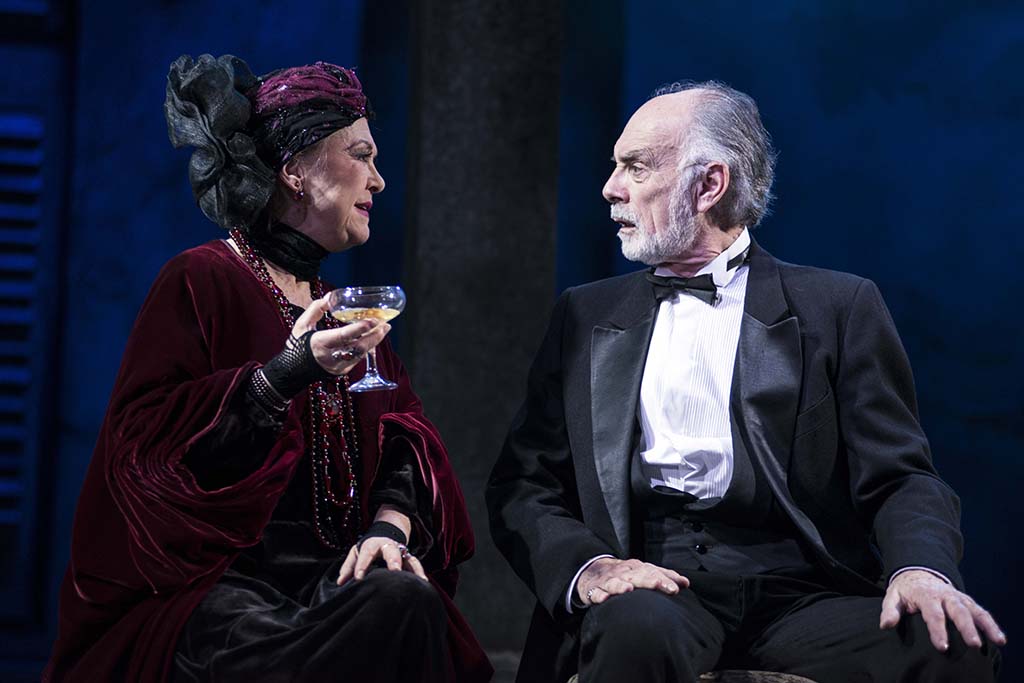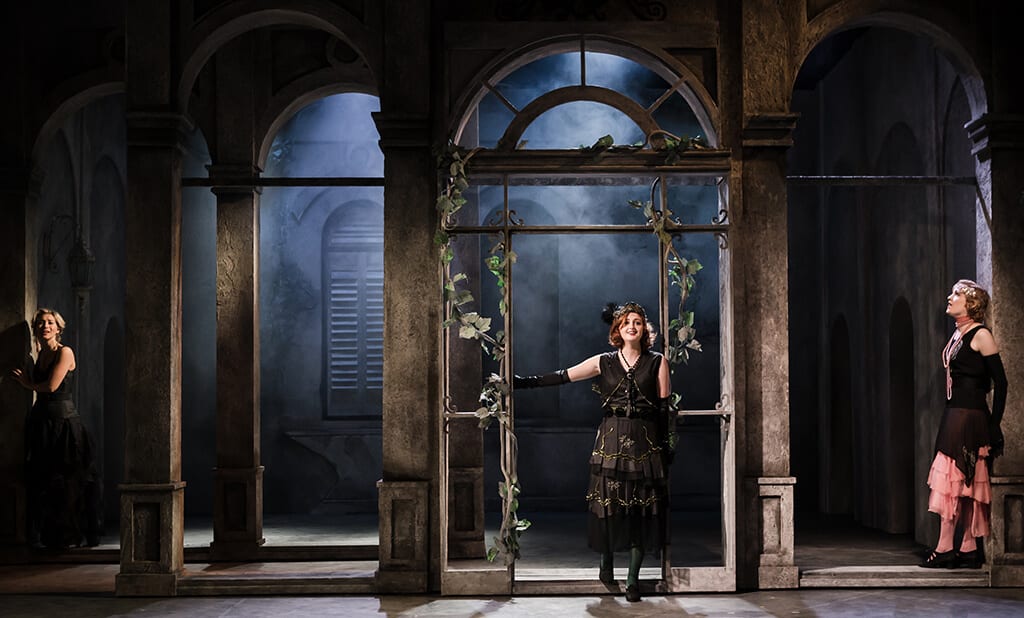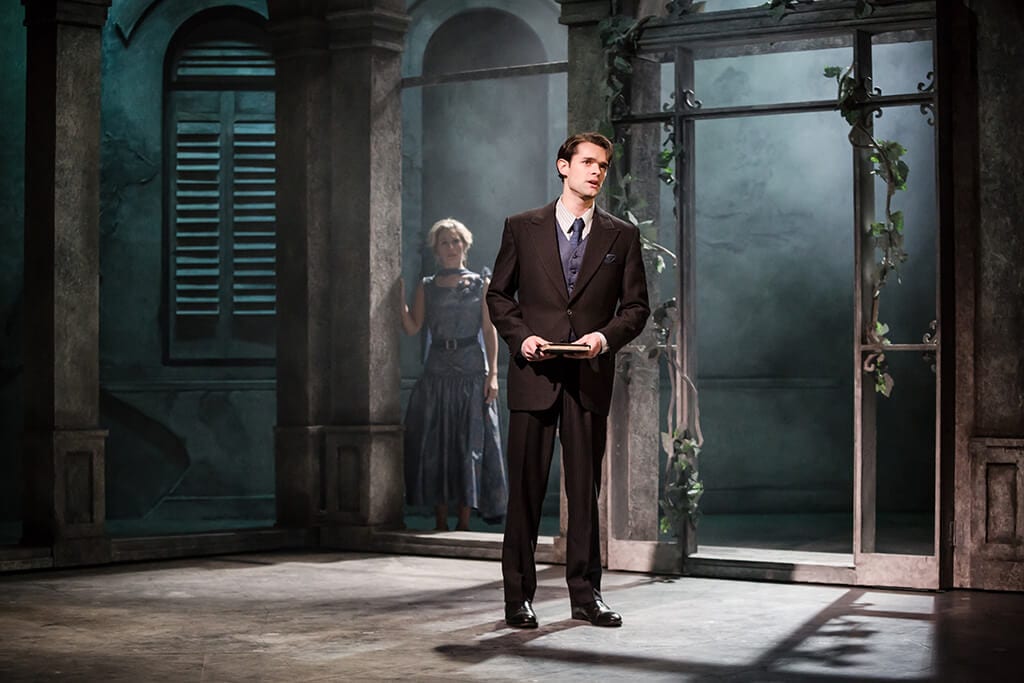Death Takes a Holiday, the Yeston/Stone/Meehan musical which has just opened at The Charing Cross Theatre boasts accomplished direction, a great cast, and probably the best set that The Charing Cross Theatre has ever seen.
Unfortunately, none of these undoubted charms can actually make up for the material, which, inexplicably given that it was apparently in gestation for fourteen years between conception in 1997 and it’s first off-Broadway outing in 2011, seems undercooked in places whilst being overdone in others.
The story is fairly straightforward. (Spoiler alert!)
Death, fed up with the slaughter of the First World War – and presumably having had his fingers worked to the bone despatching fifty-odd million in the Spanish flu epidemic which followed – is about to carry off his latest victim, a young woman, Grazia, but is so entranced by her beauty that he invites himself as a house-guest to the hilltop villa outside Venice of Duke Vittorio Lamberti (Mark Inscoe) the girl’s father, the guise of Russian Prince Nikolai Sirki and wants to find out why it is that human beings are so attached to life.
He ends up with the girl, and because he loves her, and she loves him (in the form of Prince Nikolai Sirki, who is actually dead, and in Monte Carlo) they head off together into the…well, not quite into the sunset, but you get the drift.
Where to begin? Let’s put aside the question of taste. It is what it is. This is a show with the name of the leading character in the title, and any writing team is going to have to work very hard to get an audience on-side and rooting for, and empathising with, Death as their protagonist (Even if he is sung by a velvet-toned Chris Peluso).
Sadly the heavy lifting of the absolutely necessary ‘show-don’t-tell’ just isn’t done. Death is just ‘there’, which might well be a metaphor for existence, but isn’t up to snuff in a musical. We don’t see him taking the lives of soldiers, or influenza victims, or indeed get any sense as to why he should have chosen 1921 to come into the land of the living when there must have been an equally appalling amount of suffering through any number of plagues, and mass extinctions, previously.
The problems are further compounded by the structure of the first fifteen minutes. There is a car journey (nicely evoked by Thom Southerland whose direction is exemplary throughout) during which a couple of songs act as an opening number, after which Grazia has a solo number where she sings about…well, to be honest it was a bit generic, probably about wanting a man, given the title ‘How Will I Know?’.
So, she’s the lead character, even if it’s not that clear what she wants. But hang on, there’s then a song from this guy Death (‘Centuries’ – which tells us the stuff that should have been shown previously), and then another song from Death, ‘Why do All Men Fear Me?’ (this show is not subtle… in fact the first few musical numbers are overblown to such an extent that musically they really wouldn’t be out of place as Act One closers).
Anyway, by that time I’d largely stopped caring about anybody I might have been willing to expend my empathy on, and just enjoyed the staging and the sound of the company (wincing at the occasional mis-stressed word, like com-pro-MISE. Yeston is a far better composer than he is a lyricist).
There’s a nice little duet for an elderly couple in Act Two which could have been lifted straight out of Gigi, but apart from that, unremarkable except for the fact that the ending is wrong. Death loves Grazia so much that…he proves his love by letting her live? No such luck. He takes her with him, as a willing sacrifice. I couldn’t help thinking how much better the show would have been written by Stephen Sondheim.




